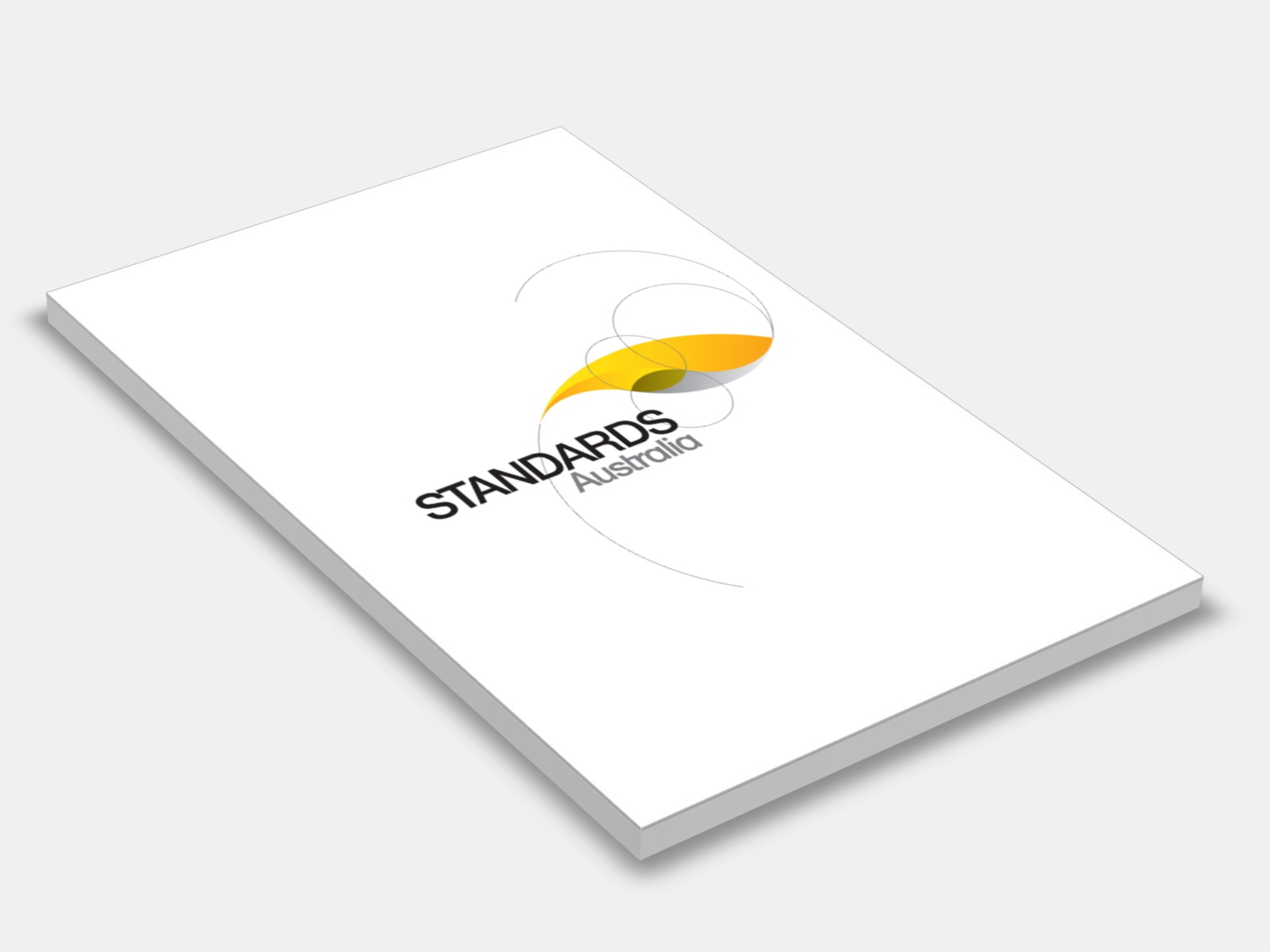
Type
Publisher
Standards Australia/Standards New Zealand
Publisher
Standards Australia/Standards New Zealand
Version:
First Edition 2008.
(Superseded)
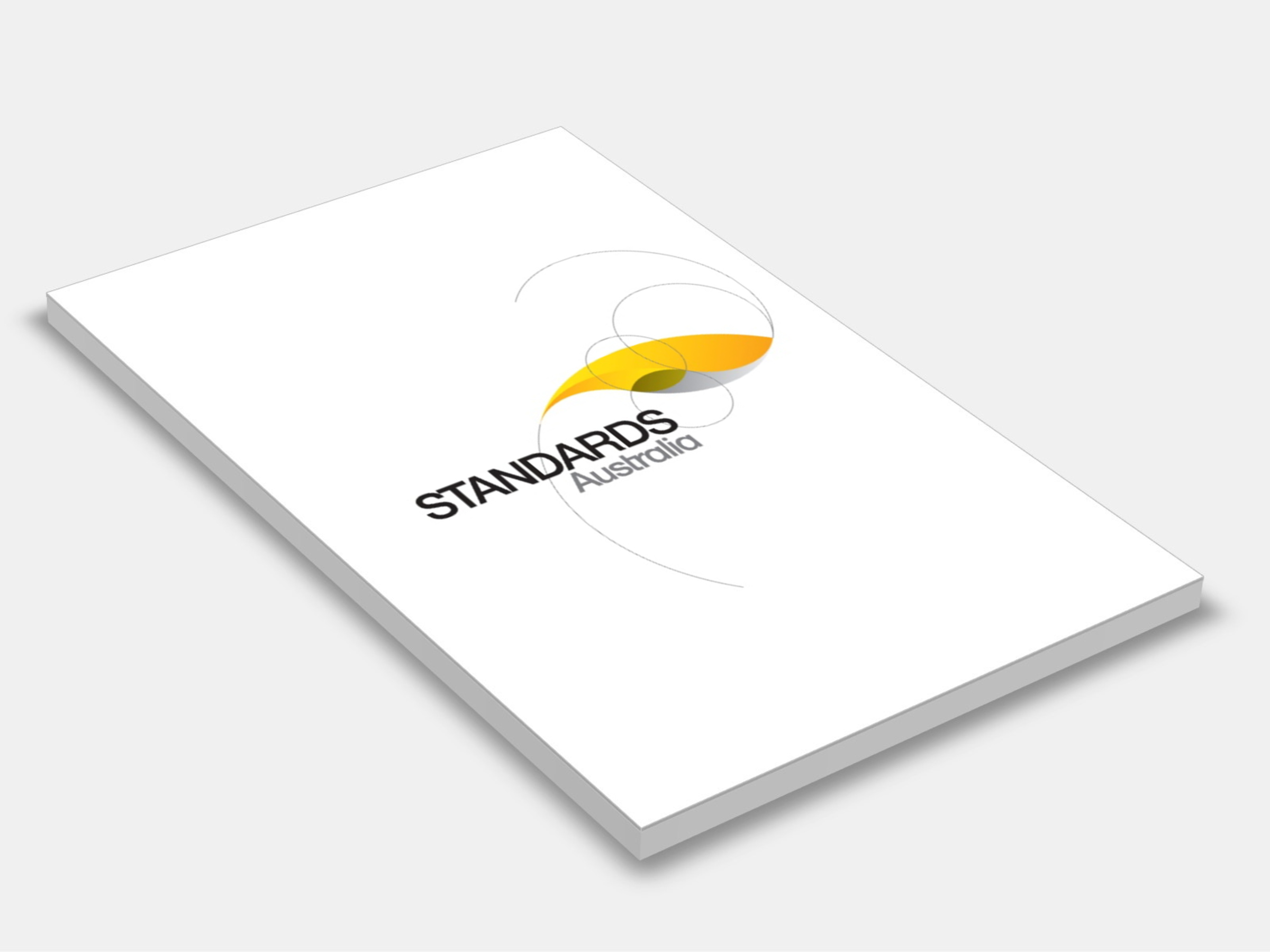
Type
Publisher
Standards Australia/Standards New Zealand
Publisher
Standards Australia/Standards New Zealand
Version:
First Edition 2006.
(Superseded)
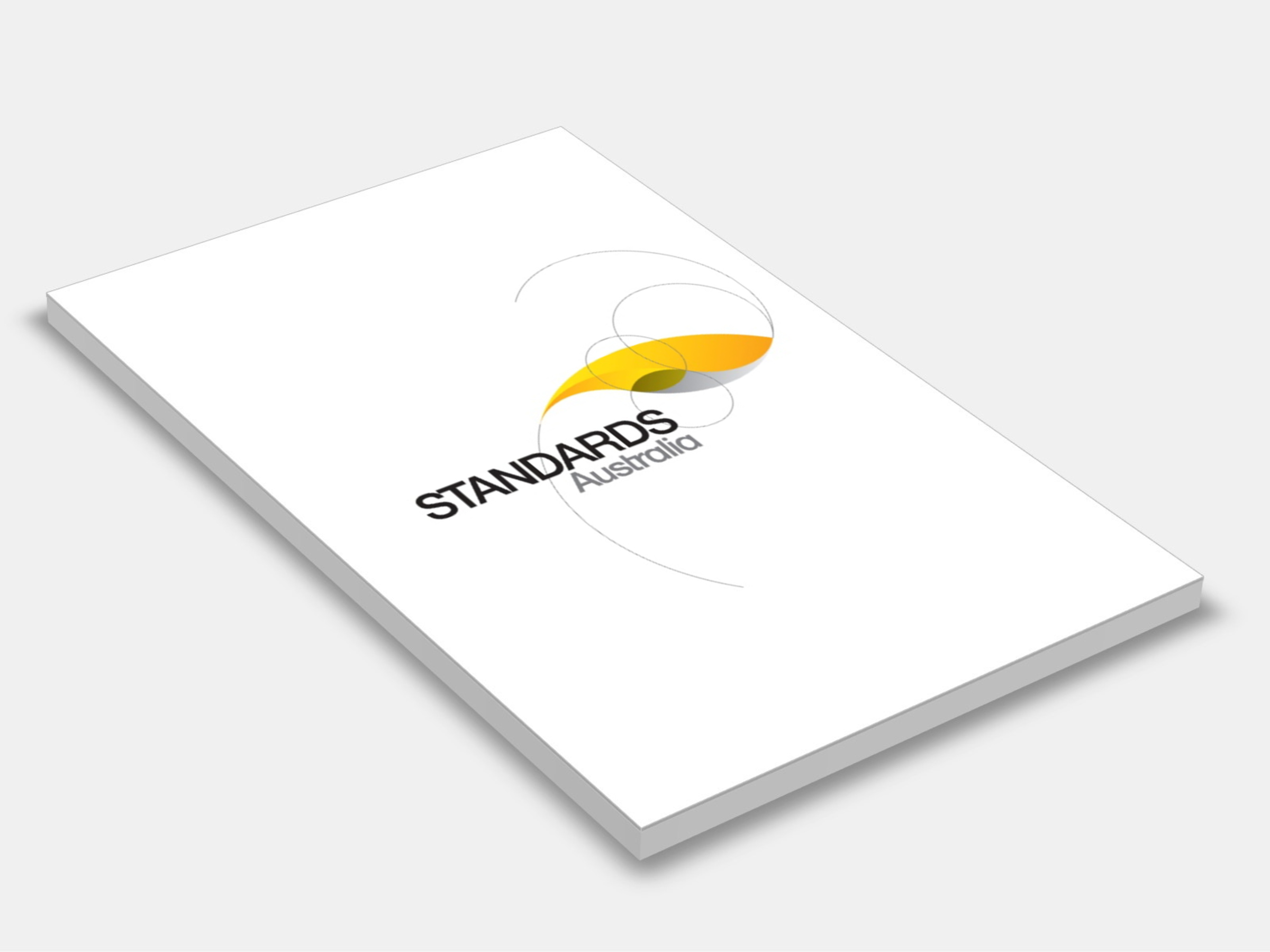
Type
Publisher
Standards Australia
Publisher
Standards Australia
Version:
First Edition 1981.
(Superseded)
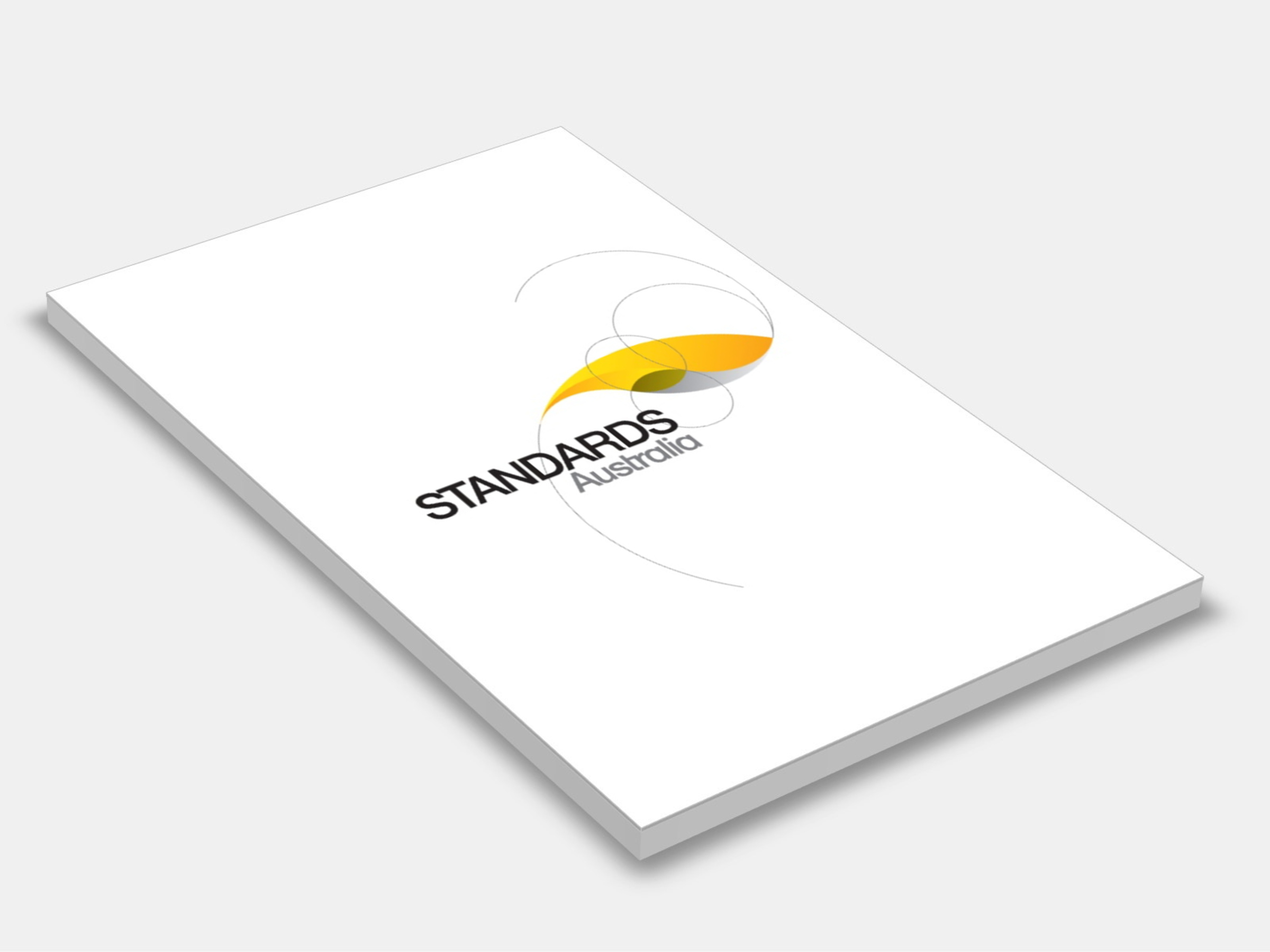
Type
Publisher
Standards Australia/Standards New Zealand
Publisher
Standards Australia/Standards New Zealand
Version:
First Edition 2001.
(Superseded)
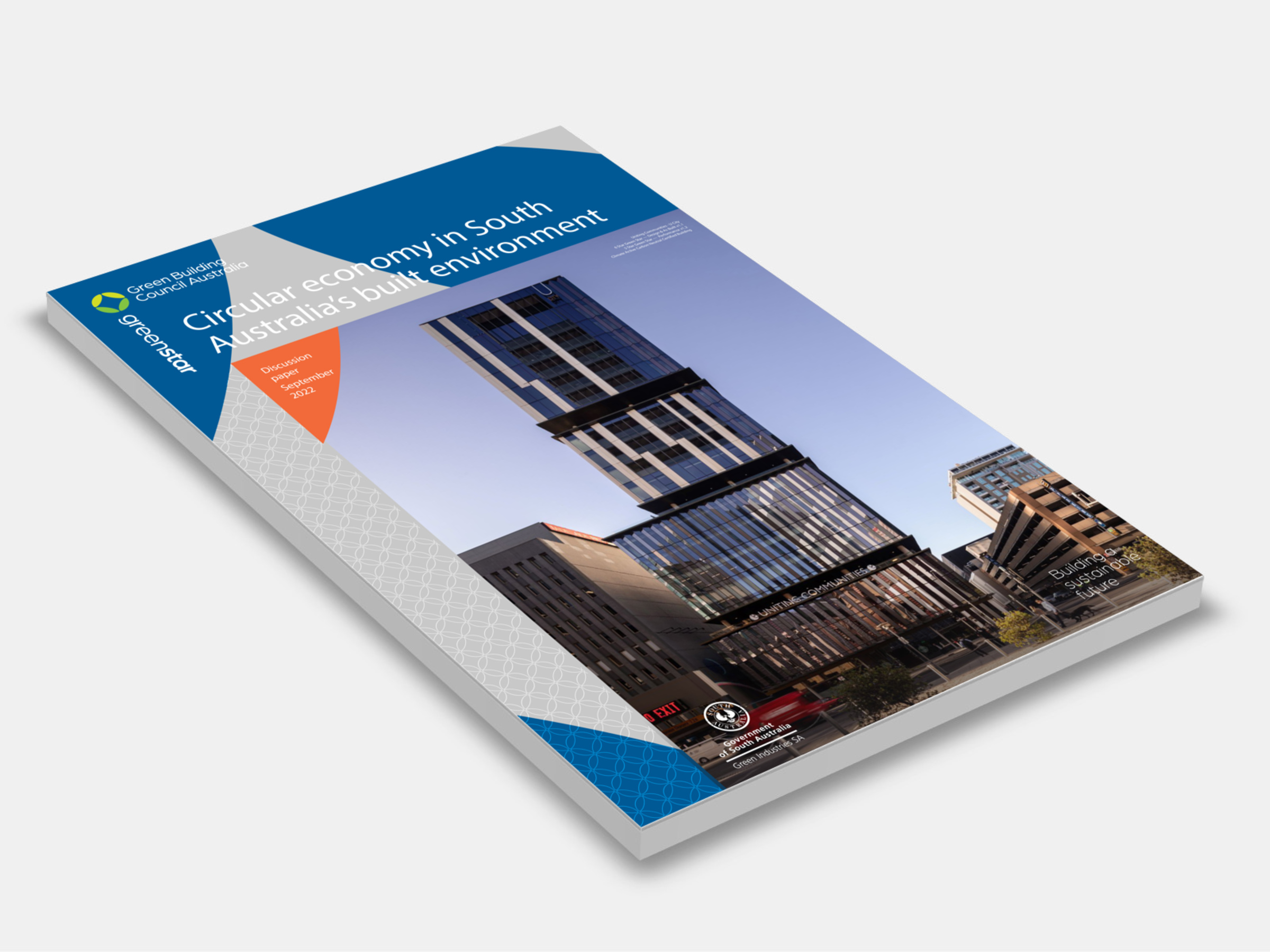
Type
Publisher
South Australian Government
Publisher
South Australian Government
Version:
2022.
(Current)
Short Description
The purpose of this report is to summarise the circular economy opportunities for South Australia, based on a national and international review of current policies, approaches and case studies.
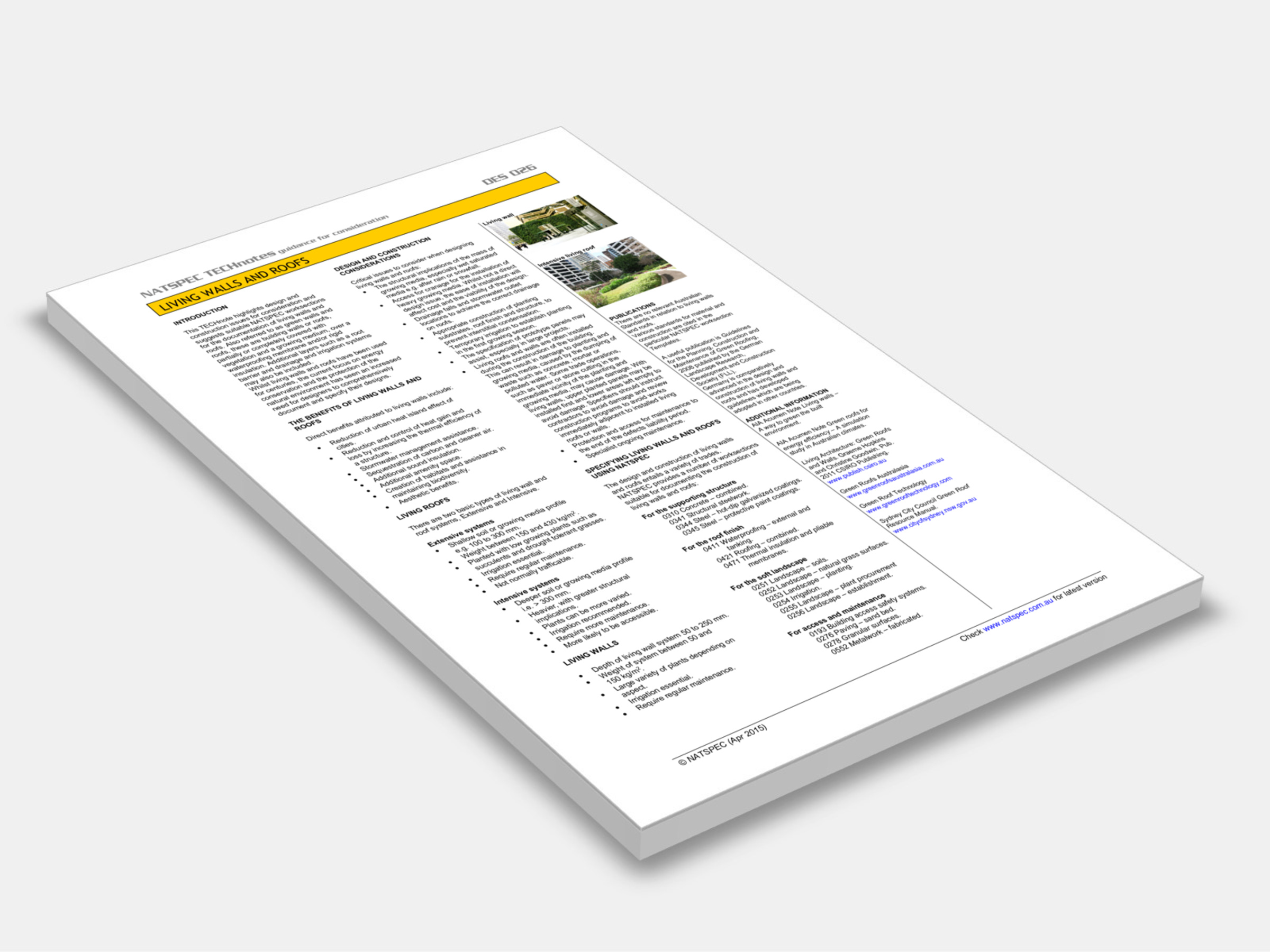
Type
Publisher
NATSPEC
Publisher
NATSPEC
Version: (Current)
Short Description
This TECHnote highlights design and construction issues for consideration and suggests suitable NATSPEC worksections for the documentation of living walls and roofs.
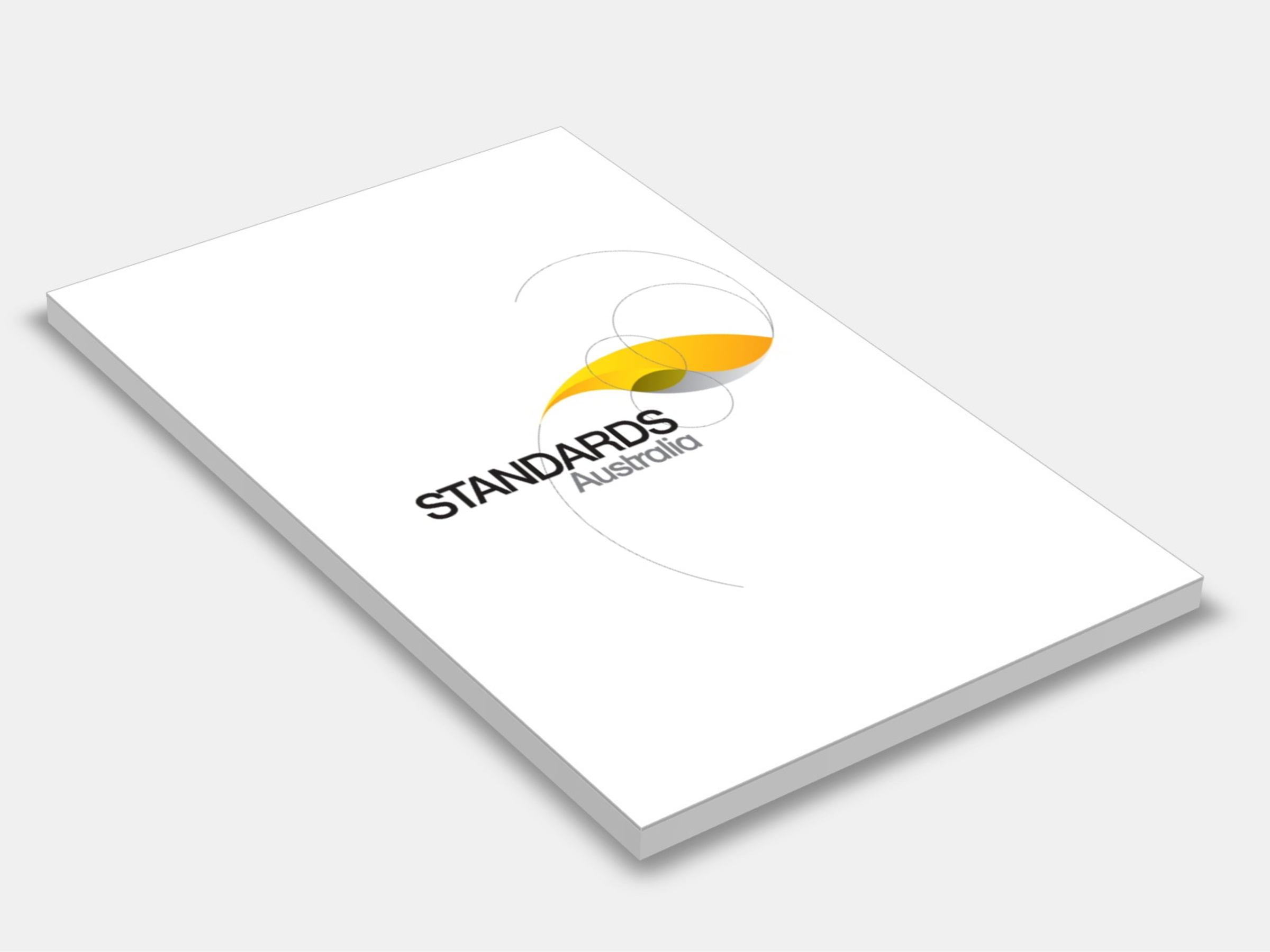
Type
Publisher
Standards Australia
Publisher
Standards Australia
Version:
First Edition 2006.
(Current)
Short Description
Provides users of AS 1288-2006 with tables for minimum glass thicknesses calculated for stress and deflection limit state wind pressures.
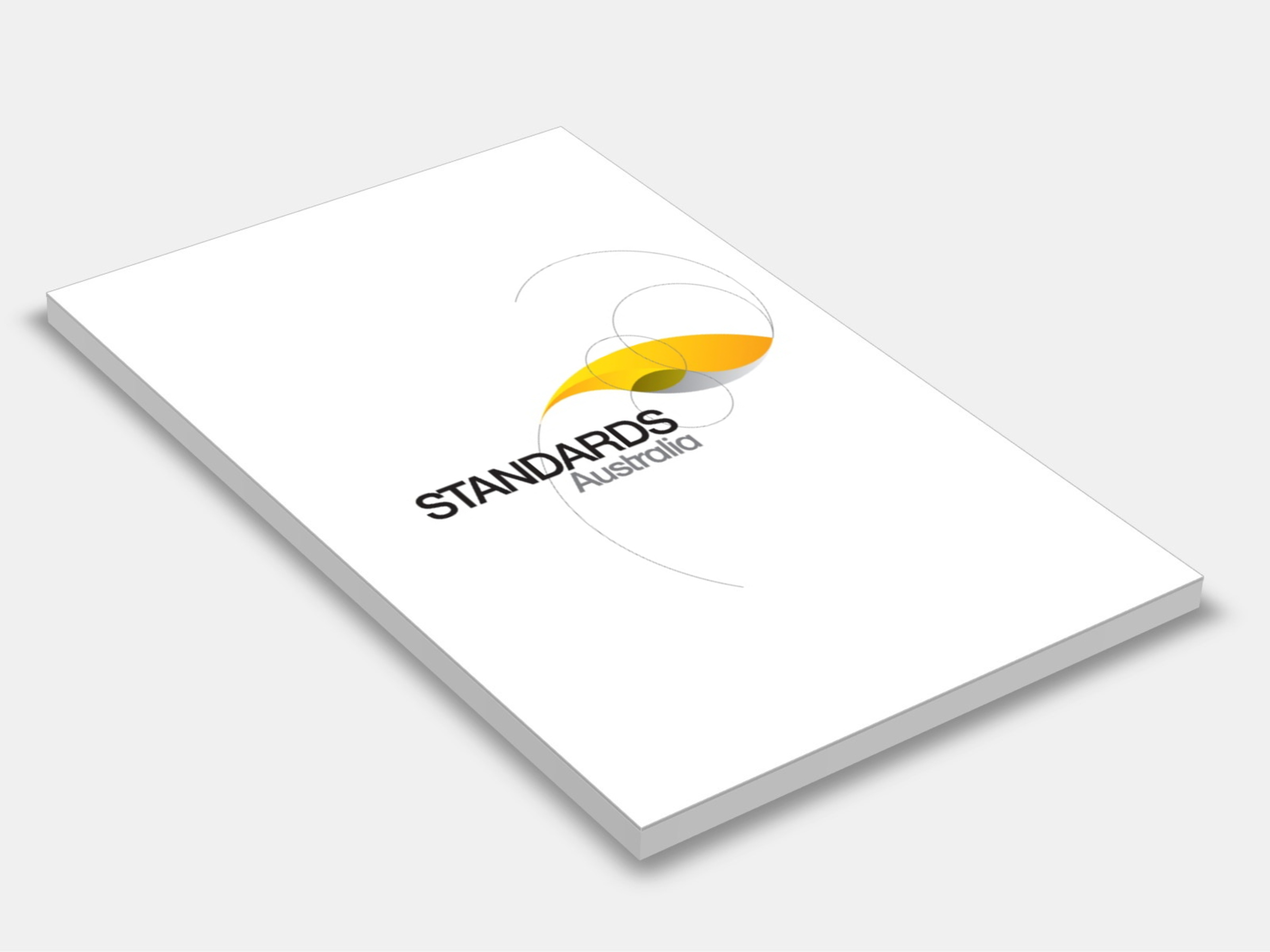
Type
Publisher
Standards Australia
Publisher
Standards Australia
Version:
Second Edition 1999.
(Current)
Short Description
Provides background information and guidance to the requirements of AS 4100-1998.
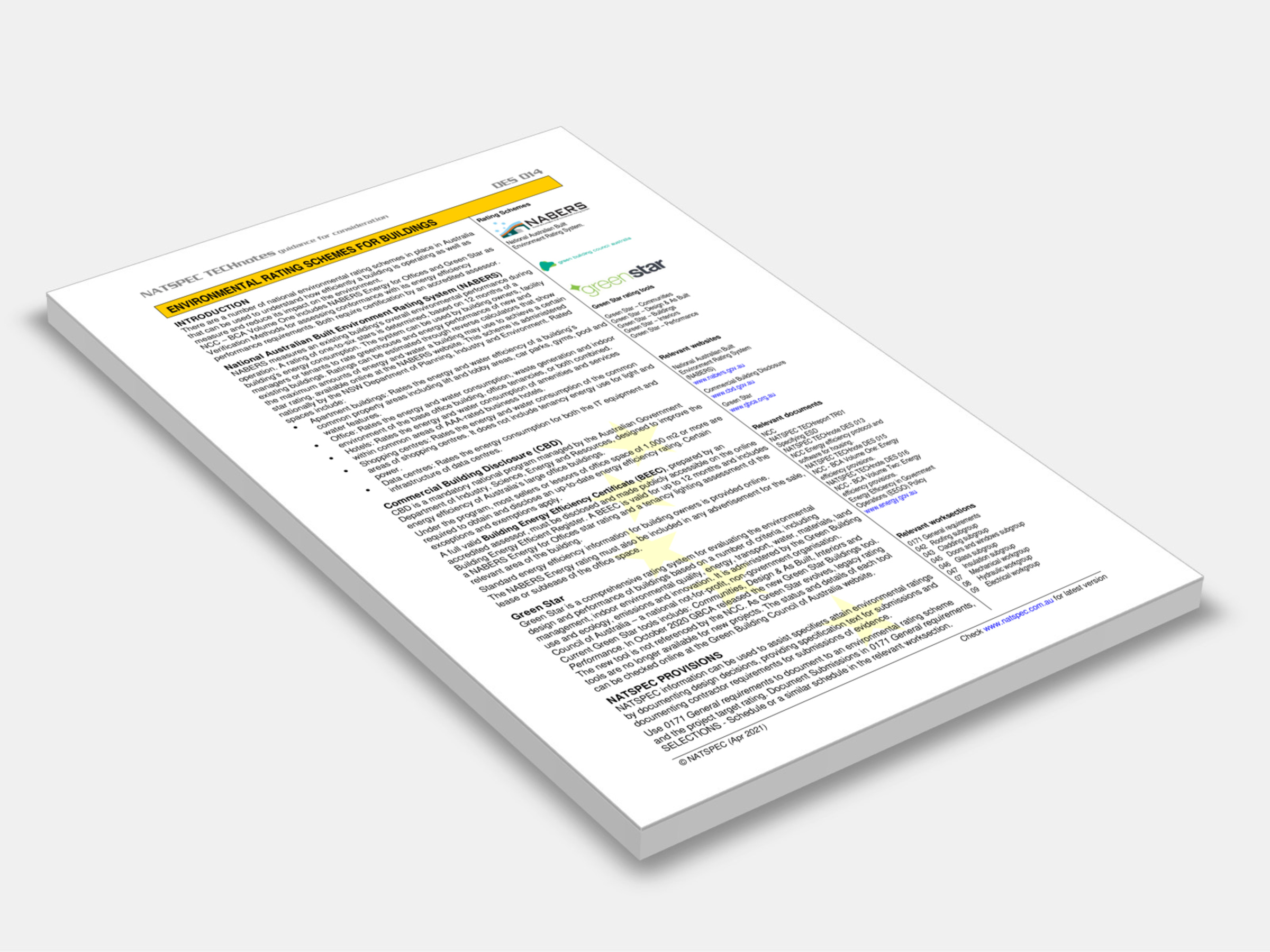
Type
Publisher
NATSPEC
Publisher
NATSPEC
Version: (Current)
Short Description
There are a number of national environmental rating schemes in place in Australia that can be used to understand how efficiently a building is operating as well as measure and reduce its impact on the environment.
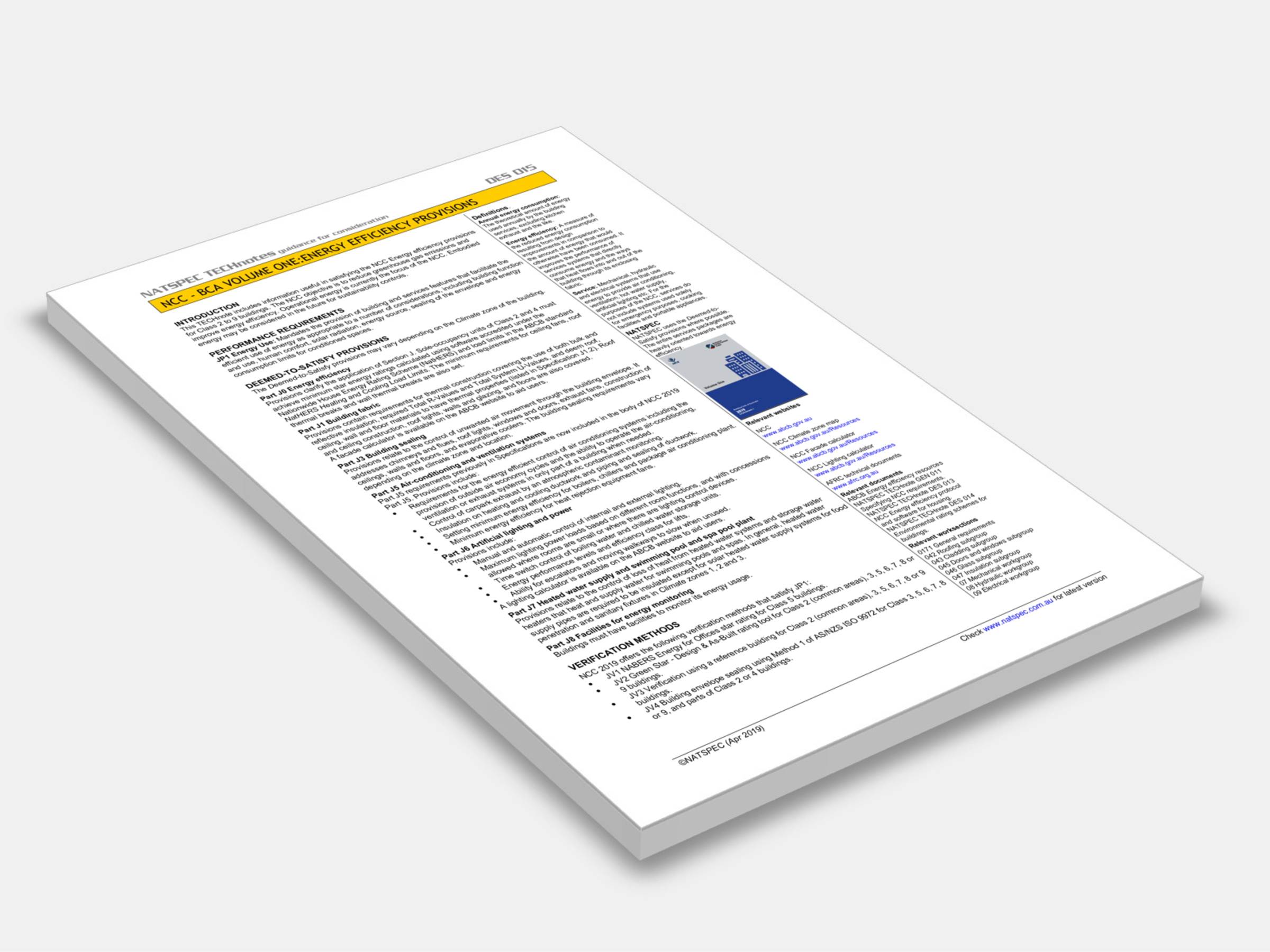
Type
Publisher
NATSPEC
Publisher
NATSPEC
Version: (Current)
Short Description
This TECHnote includes information useful in satisfying the NCC Energy efficiency provisions for Class 2 to 9 buildings. The NCC objective is to reduce greenhouse gas emissions and improve energy efficiency. Operational energy is currently the focus of the NCC. Embodied energy may be considered in the future for sustainability controls.